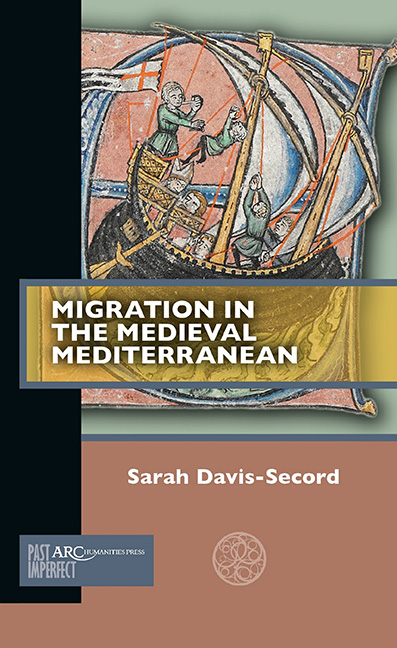Book contents
- Frontmatter
- Contents
- Introduction
- Chapter 1 Refugees from the Islamic Conquests
- Chapter 2 Hadrian and Theodore
- Chapter 3 St. Elias the Younger
- Chapter 4 Constantine the African
- Chapter 5 Jewish Refugees from the Norman Invasion
- Chapter 6 Merchants
- Chapter 7 Imam al-Mazari and Other Muslim Scholars
- Chapter 8 Unnamed Sicilian Girl
- Chapter 9 George of Antioch and Other Immigrants to Sicily
- Chapter 10 Moses Maimonides
- Chapter 11 Religious Converts
- Conclusion
- Further Reading
Chapter 7 - Imam al-Mazari and Other Muslim Scholars
Published online by Cambridge University Press: 13 January 2022
- Frontmatter
- Contents
- Introduction
- Chapter 1 Refugees from the Islamic Conquests
- Chapter 2 Hadrian and Theodore
- Chapter 3 St. Elias the Younger
- Chapter 4 Constantine the African
- Chapter 5 Jewish Refugees from the Norman Invasion
- Chapter 6 Merchants
- Chapter 7 Imam al-Mazari and Other Muslim Scholars
- Chapter 8 Unnamed Sicilian Girl
- Chapter 9 George of Antioch and Other Immigrants to Sicily
- Chapter 10 Moses Maimonides
- Chapter 11 Religious Converts
- Conclusion
- Further Reading
Summary
While the Geniza evidence allows us to see Jewish migration in action, other population groups who moved to or from Sicily at this time are less visible. We know, for example, that many Muslim Sicilians fled the oncoming Christian invaders, but we rarely find evidence of their moves until long after the fact. Like merchants who migrated because they were already regular travellers, many of the Muslim emigrants we know of were scholars who used their intellectual networks to find new patronage when circumstances dictated. Some of the most mobile of medieval people were Muslim scholars, known collectively as ʿulamaʾ, who regularly travelled across the expanse of the Islamicate world in order to teach, study, and learn together. Gathering in madrasas (schools), mosques, and at princely courts, these scholars— who were masters of philosophy, biography, poetry, the-ology, law, and a variety of sciences—would share books, learn from other masters, and debate ideas. Many Muslim intellectuals moved several times over the course of their careers, seeking both knowledge and patronage. Due to the established networks by which these educated elite moved around the Mediterranean world and beyond, many were also able to permanently relocate with their families in the wake of military conquest, political crisis, or loss of patronage. Numerous examples of intellectuals from Muslim Sicily, for example, only show up in the textual sources because they did just that: they fled the approach of Latin Christian conquerors in Sicily and relocated in Muslim cities or courts in al-Andalus, Egypt, or North Africa.
The conquering Normans were Latin Christians but made no pronouncements about the faith of their subjects nor issued a requirement for conversion, at least not explicitly. But the predominantly Muslim population of the island would have understood that they had a religious obligation to seek a safe home abroad rather than stay in a land governed by non-Muslims. Unlike Jews, who had no scriptural edict guiding their choices about whether to stay in a hostile place or to leave it (although, as we will see below, some thinkers and immigrants like Maimonides advocated in favour of migration under such circumstances), Muslims were guided by a Qur’anic injunction against dwelling in territories ruled by non-Muslims.
- Type
- Chapter
- Information
- Migration in the Medieval Mediterranean , pp. 61 - 70Publisher: Amsterdam University PressPrint publication year: 2021



